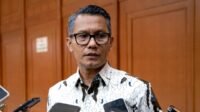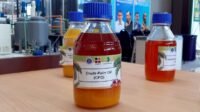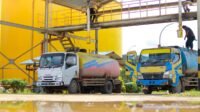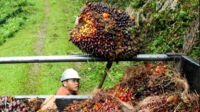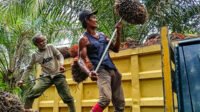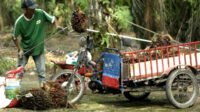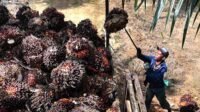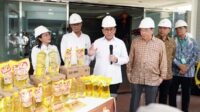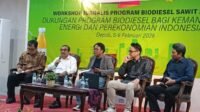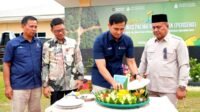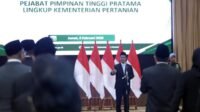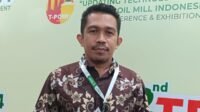Belayan Sejahtera Plantation Cooperative, in collaboration with development partners operating in Kutai Kartanegara, to help independent smallholders cope with the changes that are taking place. Our efforts are focused on providing training and knowledge on sustainable oil palm farming practices. In the last two years, more than 1000 smallholders have been trained on Best Management Practice (BAP). Cooperatives have taken the initiative to map and identify smallholders’ plantations. Village collaboration with development partners has also helped the village to plan with a landscape approach. This is our response to market challenges and potential livelihood threats, one of which will be triggered by the new EU regulation.
Independent smallholders are faced with a number of complex challenges, especially in the context of Indonesia, which has its own characteristics. I witnessed how farmers, most of whom are completely dependent on palm oil for their livelihoods, had to struggle with these changes. Not surprising given that nearly 90% of the local population depends on this commodity. However, inadequate infrastructure and a lack of investor interest in the area have created deepening economic uncertainty.
Another challenge is that some of our cooperative members’ oil palm plantations are located within forest areas. Although some of these plantations have existed for more than 10 years and are an important part of farmers’ livelihoods, there is not yet sufficient legal clarity on the status of the land. This leaves farmers with a constant struggle to seek the necessary legal certainty.
Also Read : Indonesia Faces Challenges with CPO and Derivatives Due to EU’s Deforestation Ban
Belayan Sejahtera Plantation Cooperative, which has achieved RSPO certification by 2022, has been one example of creating sustainable practices. We have mapped and verified the farms of our member farmers, created a transparent system, and gone to great lengths to ensure that sustainable agricultural practices are actually implemented. Legal uncertainty and market pressures demanding Fresh Fruit Bunches (FFB) sourced from Areal Penggunaan Lain (APL) further complicate the situation, as there is limited ‘legal’ land in the village.
Amidst the complexity of systems and policies in Indonesia, our efforts to achieve compliance with sustainability principles is a complex struggle. How we will face this challenge, and how long this complex situation will be maintained by the government, are questions that remain hanging in the air.
The government should provide technical and financial support to independent smallholders to shift to sustainable practices, through training, selection of more sustainable crop varieties, and comprehensive solutions that can help increase crop yields. Empowerment of independent smallholders and improved organization are important steps to provide better access to resources, markets, and necessary knowledge.



